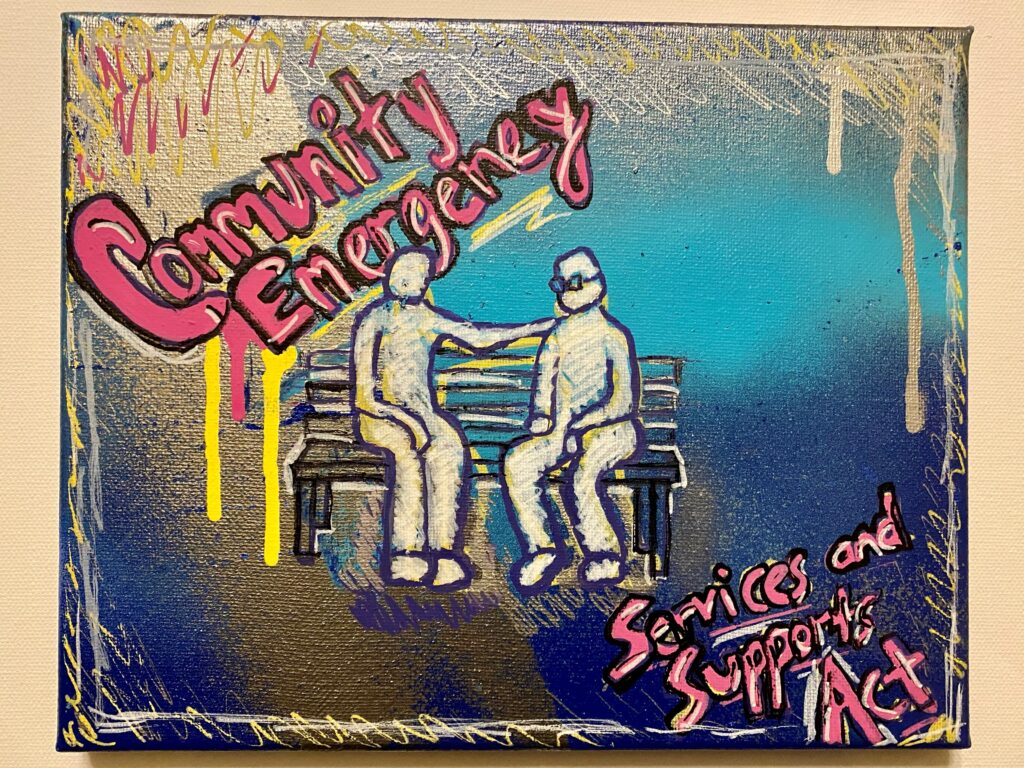Candace Coleman
Community Strategy Specialist
CESSA is an Illinois law that requires 911 to coordinate with mobile mental health response services being developed by the Illinois Department of Mental Health.
Download the slides from this webinar here.
Originally recorded October, 2024
SAMHSA’s National Guidelines for Behavioral Healthcare Best Practices Tool Kit (2020)
Roadmap to the Ideal Crisis System from National Council for Mental Wellbeing
Roadmap to the Ideal Crisis System – Executive Summary
More: How CESSA came to be
8/30/24: State delay in launching mental health response program underscored by Sonya Massey’s death
Illinois Governor JB Pritzker signed CESSA into law in August of 2021. The Illinois Department of Mental Health is currently coordinating the committee meetings required by the Act for the purposes of adapting the Act’s requirements to the local resources across the State. Learn more about the Department of Mental Health’s work.

In general CESSA prohibits police from responding to a call seeking assistance with a mental or behavioral health crisis.
CESSA permits co-responder models only when there is violence or criminal activity.
CESSA does not distinguish between types of police responders, similarly prohibiting CIT trained police or police operating in co-responder units. CESSA prohibits all such responses subject to two significant exceptions.
First, CESSA allows police to respond to any situation where there is a suspected violation of criminal law or a threat to personal safety. In such situations, CESSA does not address how police may respond, and, as appropriate, in these situations dispatchers may deploy CIT trained officers or officers operating with co-responders. This exception still provides these responders with a necessary and significant role in the emergency response system.
Second, CESSA recognizes that unanticipated emergencies may result in the inability of 988 to provide non-police assistance in an appropriate amount of time. Each EMS Region Committee will set their local standards for response times. If 988 cannot meet those response times, police, ideally through CIT trained officers or with co-responders, may then respond to those calls for assistance.
The law was originally the brainchild of young Black and brown disability advocates involved with Access Living’s Advance Your Leadership Power (AYLP) group. AYLP wanted to fight the widespread criminalization of people who experienced mental health crises. Just like police are not appropriate care providers for people experiencing a heart attack, police are not appropriate care providers for people experiencing a mental health crises.
AYLP members were also influenced by the experience of Stephon Watts, a Calumet City high school student for whom the bill is also named. Learn more about him.
Early versions of the bill asked the State to set up mobile mental health response teams to take the place of police responders. AYLP hoped to create an Illinois program modeled on the Cahoots program in Eugene, Oregon, instead of other models that rely more heavily on police. Before the bill passed, the State made the decision to begin providing mobile response teams when it transitioned to the federal 988 mental health hotline. That left one major piece of AYLP’s vision to complete. The State still needed a system to allow callers to 911 to also access the 988 mobile responders.
CESSA is that piece, requiring calls seeking mental or behavioral health support to be transferred to the State’s 988 hotline for potential mobile response.